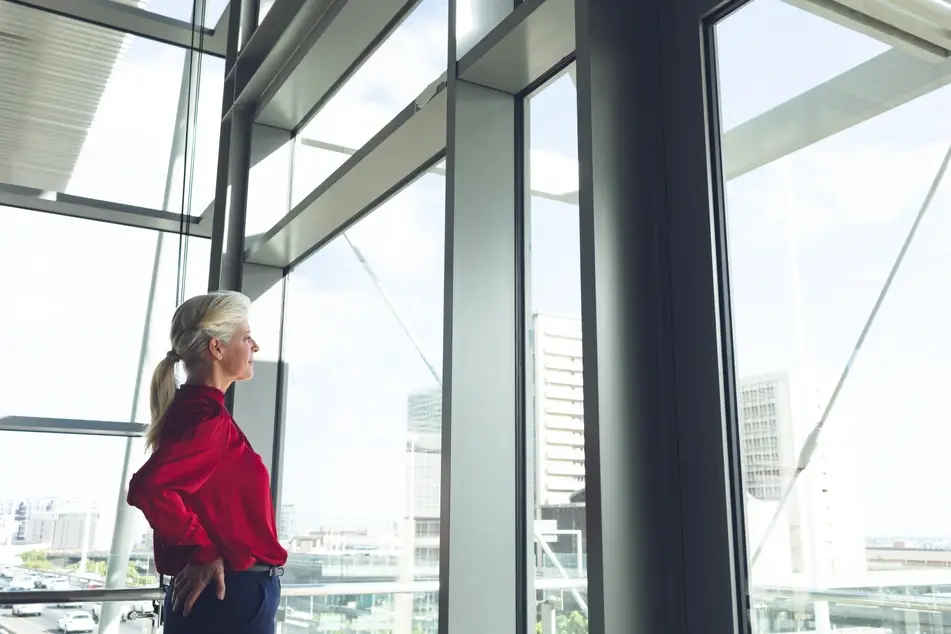Age Discrimination At Work | Will COVID-19 Make it Worse?

During the early onset of the COVID-19 pandemic, we learned that people over the age of 65 are particularly susceptible to developing more severe aspects of the illness.
This means that people in the over-65 age group are now more likely to be misperceived as frail, weak, and even a potential liability in the workplace. So, as the world begins to attempt "business as usual," will older adults be further discriminated against because they’re more vulnerable to coronavirus?
Ageism in 2020
In the period between 1990 and 2017, age discrimination claims doubled and an AARP survey reports that two-thirds of employees between the ages 45 and 74 have witnessed or experienced ageism in the workplace. And with an anticipated 8% increase in older Americans representing the workforce by 2024, age discrimination has become a growing challenge that requires our attention.
That is why earlier this year, the U.S. House of Representatives passed the Protecting Older Workers Against Discrimination Act, which would make it easier for older adults to fight age discrimination at work and to protect their livelihoods.
However, no final decision has been made because the bill—like many others—was put on ice due to COVID-19 even though the need for it may become even more urgent since the pandemic has been reported to have amplified ageism.
The pandemic effect
In the U.S., 80% of coronavirus deaths have been people over the age of 65. This has made older adults vulnerable—not just to the virus itself, but to potential discrimination. The challenge is combating a mindset that sees older adults as people in weak health and requiring special accommodation or as a potential liability.
But these stereotypes and misconceptions about older workers existed long before COVID-19 did. It is important to remember that as far as the virus is concerned, though it has leveled a blow to the 65+ demographic, it has not—and will not—destroy senior citizenry.
Debunk the most common concerns
Combating ageism in the age of coronavirus must be done on two fronts. The first front requires acknowledgement that age discrimination is a real issue. This means learning to see age as an asset and creating a more inclusive office environment.
The second front must fight the underlying premise that older workers are more vulnerable to illness and therefore cannot be as productive as their younger counterparts.
Whether you are young or older, here are four talking points addressing the most common concerns about how the elderly can handle the present circumstances:
- COVID-19 doesn’t affect all people over the age of 65 in the same way, nor are the risks the same. So much depends on the state of a person’s health—which is true even for a younger demographic.
- Older adults have long been vulnerable to chronic conditions—such as arthritis, heart disease, lung disease, and osteoporosis—but that hasn’t stopped them from participating (and thriving) at work.
- The past and the present show us how older adults actively contribute to their workplaces and communities. Age hasn’t been a challenge; in actuality, age and experience can be a real boon.
- Any rhetoric that devalues older adults on the basis of their age is in fact discriminatory—and dehumanizing.
Preempt ageism during the job search
If you are an older adult looking for a job as the pandemic continues, you need to make sure the focus is on your experience and not your age.
To do this, you must:
- Know what you’re looking for. If someone within your network asks if you what kind of job you are looking for, have a clear, succinct answer ready. For example, “I’m looking for a communications role at a nonprofit in New York City.” Keeping it brief will invite relevant questions and conversation.
- Stick to what’s relevant. When you work on your resume and LinkedIn profile, make sure you’re sharing experiences that are related to the role you want. You don’t want to overwhelm a potential employer with so much information that they’re unable to see the value you bring to the table as it relates to the type of position you're looking for.
- Shut down elderly stereotypes. Don’t let your potential employer—or anyone you are networking with—dismiss you because you are older. Use clear, active verbs (e.g. action verbs) in your resume, LinkedIn profile, and in-person to describe your experience and interests. Don’t be afraid to show your personality in conversation or sartorial style. In other words, let them see you.
An ongoing conversation
Like any discrimination, ageism will not disappear overnight. The hard, behind-the-scenes work must be done to make people see older adults as more than their age. It is yet to be truly seen if COVID-19 will be the impetus for more widespread discrimination, but these concerns must be aired so that real solutions can be found.
Whatever your age, talk to the people you know about age discrimination. Learn about firsthand experiences or observed behavior and how those incidents were handled. And if you have questions or concerns, start a conversation with your management, co-workers, and human resources department.
***
Have you experienced ageism firsthand? Or have you seen it in action? Share your experience with us on Facebook.
Nisha Kumar Kulkarni is a writer and creative coach in New York City. She helps women living with chronic illness and mental health challenges to pursue their passion projects without compromising their health.


